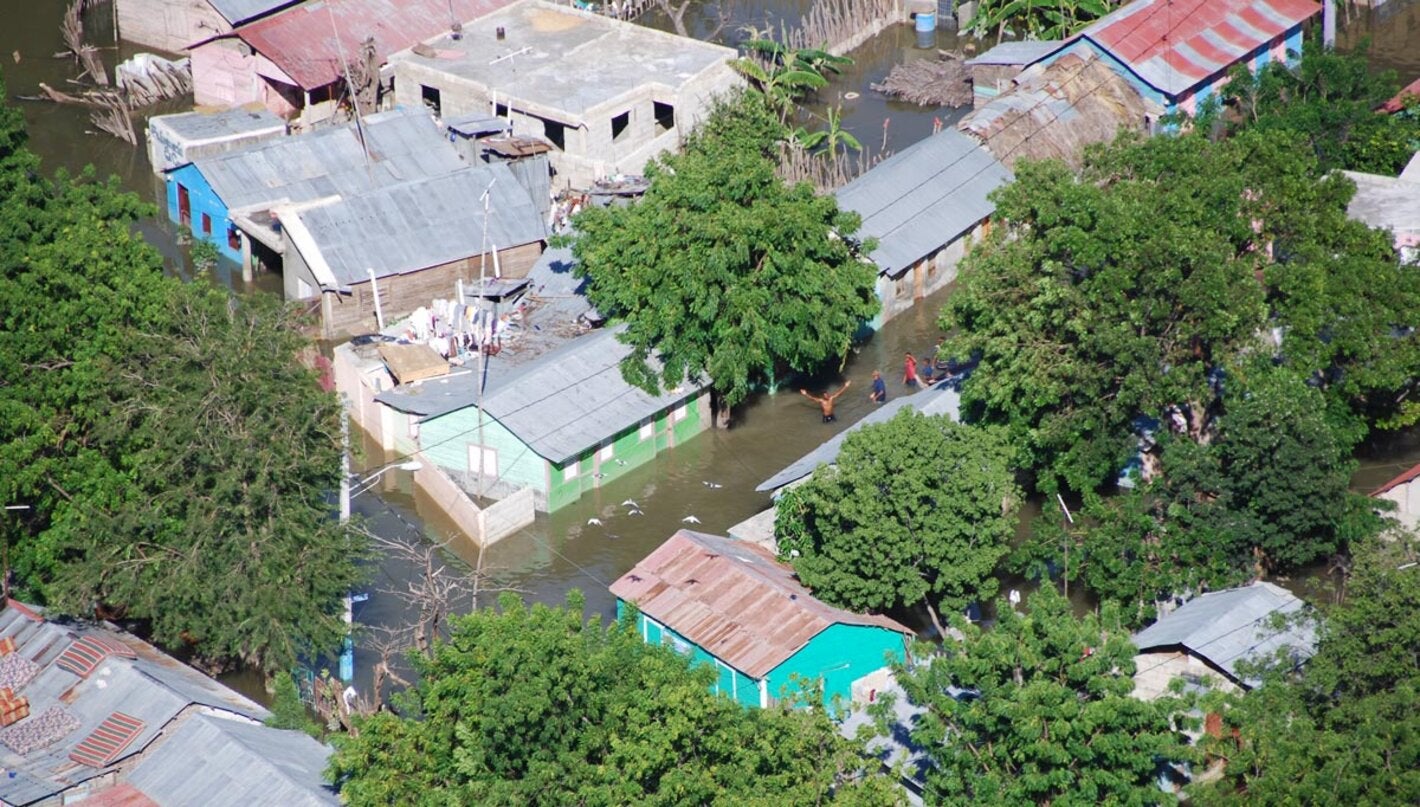
Washington, February 25, 2022 (PAHO) – The Pan American Health Organization published guidance urging countries to step up surveillance efforts after floods to quickly identify and control disease outbreaks with serious public health impact.
In an Epidemiological Alert on “Post-flood public health events in the context of COVID-19 pandemic,” PAHO noted that heavy rains in South America, which have already caused severe flooding in Colombia, Brazil, Peru, Ecuador, and the Dominican Republic, could continue through March due to the La Niña weather phenomenon. They could also put additional burdens on overly strained health systems that are already fighting COVID-19.
Floods and landslides can cause disruptions to water supply and sewage systems, contamination of crops and foods, and displacement of populations to makeshift shelters, where they are exposed to overcrowding, poor sanitation and other risk factors, the PAHO alert said. Infection prevention and control measures are critical in these shelters to reduce the probability of COVID-19 and other outbreaks.
Common health events after floods and landslides include acute diarrheal diseases and leptospirosis infections from exposure to contaminated water. Early and adequate treatment for these diseases can save lives.
PAHO recommended that countries set up early warning and response systems (EWARS) to detect outbreaks and health events that require immediate response. Source information for EWARS include disease surveillance, community-based surveillance, environmental and ecological observations, and health-related behavioral information such as drug and product sales.
Contaminated water after floods will require prevention, disinfection, and communication measures, and PAHO recommends that local health authorities implement continuous monitoring of water quality for human consumption and food preparation and provide safe water in sufficient quantities and adequate information to populations.



